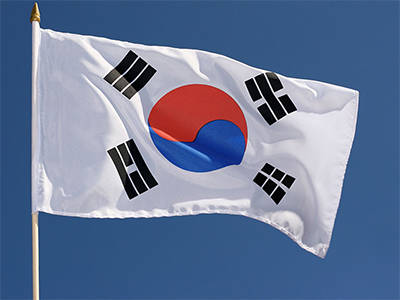“No Condition is Permanent!” The shifting of electronic tech leadership to Korea
As a young person growing up in Kabba, I was always fascinated by the slogans written on lorries and “bole kajas” back in the days. Samples include “No Food for Lazy Man,” “If Man Were God,” “Sweet Mother,” “Eda o L’aropin,” “A’i m’asiko,” “Ile Oba to Jo,” “Eyi Owu a Wi,” and so on. However, […]

As a young person growing up in Kabba, I was always fascinated by the slogans written on lorries and “bole kajas” back in the days. Samples include “No Food for Lazy Man,” “If Man Were God,” “Sweet Mother,” “Eda o L’aropin,” “A’i m’asiko,” “Ile Oba to Jo,” “Eyi Owu a Wi,” and so on. However, the slogan that really got stuck in my mind till date is “No Condition is Permanent.” This is perhaps because I see it manifested so often in our daily lives. This slogan has absolute validity, if nothing else but the fact that death puts an end to any condition of man on earth. No Condition is Permanent!
Of course, the hidden lesson to be learned from the slogan is that our situation today is temporary – ephemeral. So, as a corollary, you need to be kind to people if today you find yourself in a position of power and privilege, for this will not last forever. This is indeed a powerful human-leveler.
Back to technology, on a commodity basis, the way Blackberry was supplanted by iPhone is perhaps one of the most dramatic wealth transfer phenomenon in tech history. On a national basis, the shift of electronic tech leadership from Japan to Korea is equally noteworthy.
In the 70s through the 80s, the Japanese company, Sony, was way ahead of everyone in electronic products ranging from personal audio systems, video cameras, TVs, personal computers, and game consoles. Remember Walkman, which was invented in 1979? Starting from sockets and radios, Panasonic, another Japanese company, introduced DVD recorders, Blu-ray disc recorders, liquid-crystal displays and lithium-ion batteries. Sharp, a Japanese company, was perhaps the world’s first to manufacturer color TVs in 1960 and LCD TVs in 1987.
As the electronic industry entered the digital age in the 2000s, Japan’s leadership in electronic leadership began to wane, as products from Japan were being overtaken by digital devices from Samsung in South Korea and Apple in the US. In the TV market, Samsung and LG Electronics, another Korean TV maker, caught up and surpassed Sharp.
Unlike the case of Blackberry, who failed to prepare for the iPhone, Sony prepared for the mobile device market; for example by forming a partnership with the European mobile carrier, Ericsson, and launching several smartphone products. A year after iPhone was launched (2007), Sony launched its first Windows-based smartphone Xperia X1 (in 2008).
However, some viewed the Japanese firm’s smartphones as being too pricy and less innovative in terms of user experience when compared to phones from Apple and Samsung.
Two characteristics of Koreans might have helped Korea compete favorably with Japan. First, Korea is strategically located between China and Japan, and centrally relative to many important countries in Asia. As a result, Korea has been invaded many more times than any other country in the world. This situation is believed to have led to some level of paranoia in Koreans. The recent Japanese occupation is fresh in every Korean’s mind, so is the mission of the country to surpass Japan in many aspects of development – if only to prevent history from repeating itself.
America’s crucial role in delivering Korea from Japan during the Japan-Korean war has significantly enhanced the adoption of American-style education (and religion – Christianity) by Koreans. On the other hand, Japan probably saw itself as being at par with the US. So while Koreans were sending their kids to the US to study and earn the Ph.D. degree, Japan was complacent. (In Korea, companies only promote Ph.D. holders to the upper management.) The newly-minted Korean Ph.D. holders return to Korea to “off-load” their skills. So, while basic science research started to progress rapidly in Korea, the opposite trend seemed to be the case in Japan. However, Japan’s applied physics and robotics is strong.
The second characteristics of Koreans to be noted is best described by an anonymous posting: “Koreans applied their hard work, fast mentality, and creativity to create products for the domestic and then world market. The Korean market is very competitive due to its highly discerning consumers. That is why a lot of global companies in all areas like to put out products there first because if a product does well in Korea, it most likely will do well in the rest of the world. Korean companies understand this market so they have a great competitive advantage due to this mindset. They really understand the consumer.” This disposition of the Korean consumer was ably fueled by Apple Steve Jobs’ mentality of insanely-simple-to-use smartphones. The iPhone was launched in 2007, Sony followed with its own smartphone in 2008, while Samsung joined the bandwagon in 2009. Even though Sony’s phones were perhaps more powerful than iPhone and Samsung Galaxy, the glitz and ease-of-use of iPhone made it stand apart from Sony’s products. Samsung phones fare very well, even though they are more capable than iPhone, partly because they are also made to be very easy-to-use, which apparently originated from the magic of the Android operating system (OS), with its openness, and extensive apps. Equally important is the fact that Windows Mobile OS, the engine behind Sony’s smartphones, is excruciatingly difficult to use compared to Android.
